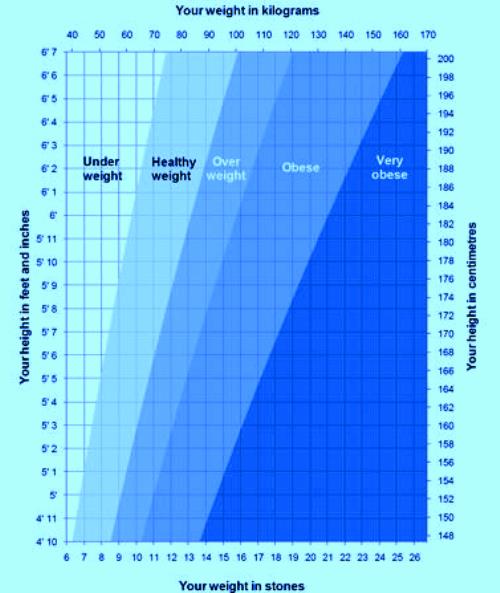Make an Appointment
What to eat in order to increase height and maintain health?
DIET CURES MORE THAN A DOCTOR
Let's discuss as to how many types of foods are available and how they affect our health?
We recognize the constraints associated with a modern life and emphasizes on the concept of a balanced diet, so that you can still have your occasional burgers or cakes. For a diet to become balanced, you must include salads, fresh vegetables, fruits and nuts in your daily menu plan.
A Balanced Diet comprises of the following food groups.
| Carbohydrates | The bulk energy providers |
| Proteins | The body building foods |
| Fats | The concentrated energy sources |
| Vitamins | The functional foods |
| Minerals | The functional foods |
| Sprout | A very essential component for an effective balanced diet is Sprout |
CARBOHYDRATES: The Bulk Energy Provider
Carbohydrates are available commonly in the form of starch, glucose, cane sugar, milk, etc. Grains, roots, and tubers are composed of starch which is a complex carbohydrate. Wheat and corn form the chief sources of this food group. This roughage in the diet is necessary for the mechanism of digestion & elimination of wastes.
The dietary fiber has a property of holding water & swells & behaves like a sponge as it passes through the digestive tract. It adds bulk to the diet & reduces the transit time in the gut.
Lack of carbohydrates causes constipation & colon cancer. The contractions of the muscular walls of the digestive tract is stimulated by fiber & so it counteracts the tendency of constipation.
Some dietary fibers like gums & mucilages lower blood cholesterol in hypercholesterolemic subjects & blood glucose in diabetics.
Recent studies indicate that gums present in fenugreek seeds (it contains 40% gum) are effective in reducing blood glucose & cholesterol.
Carbohydrates are a good & simple source of energy.
The daily diet of an adult should contain at least 40g of dietary fiber.
Mathematically 1g of carbohydrate = 4.2kcal = 16.8KJ
Digestible Carbohydrates
Examples are starch and glucose. Starches when eaten in a cooked form are completely digested in the gastro-intestinal tract & the released glucose is absorbed & metabolised in the body to release energy
Non-Digestible Carbohydrates
These include gums, pectins, lignins, hemicellulose etc. & constitute the �dietary fiber�. These are not digested in the digestive tract & most of them are voided as such and contribute as bulk in stools.
FATS: The concentrated energy source
Weight, more than twice the energy provided by either protein or carbohydrate, imparts palatability to the diet and retards stomach emptying time.
Fats are important for the absorption of vitamin A and B-carotene in the diet.
Fats derived from the vegetable sources provide essential fatty acids which have vitamin-like functions in the body and important for the structure & function of cells and tissues.The poly-unsaturated fatty acids (P.U.F.A.) present in oils are composed mainly of linolenic, linoleic, and oleic acids. The linoleic acid prevents cardio-vascular diseases and coronary heart disease.
P.U.F.A. present in oils like groundnut, safflower, or sunflower oil also prevent an increase in serum cholesterol in a high fat diet and thus are anti-atherogenic.
Fats give considerable amount of energy to the body.
Mathematically, 1 g of fat= 9 KCal= 37.8 KJ
Sources of Fats
| Visible Fats | Animal fats, hydrogenated vegetable fats, butter, oils etc.. |
| Invisible Fats | Cereals, oilseeds, milk, meat, eggs etc� |
Recommended Fat Intake
Essential Fatty Acid: 36 % of the total energy intake.
Visible Fat: 15 25 g / day of total energy intake depending on age & physiological state.
Invisible Fat: 6 % of the total energy intake.
PROTEINS: The Body Building Foods
Protein in the diet is a measure of adequacy & quality of the diet. Proteins are broken down into amino acids and absorbed as such & these amino acids derived from dietary proteins are used by the body to synthesize proteins needed for various body functions like tissue building, replacement of depleted proteins & synthesis of functional molecules like enzymes, hormones and anti-bodies.
Mathematically, 1g of protein= 4.2 KCal= 16.8 KJ
Sources of protein
- Meat, fish, eggs, pulses, soybean (contains unto 40% protein), oil seeds, nuts, defattened oilseed cakes, and milk.
- Unconventional protein sources are leaf proteins, SCP i.e. single cell protein
- There are 19 amino acids. There are 9 essential amino acids as they cannot be synthesized in the body and 10 non-essential amino acids.
- Egg protein and human milk protein are considered as high quality proteins & serve as reference proteins.
- A combination of cereal and pulse in the ratio of 5:1 is found as ideal.
- The adult requirement of egg protein is 0.7g per kg while requirement of mixed vegetable protein is 1.0g per kg.
Check your height

